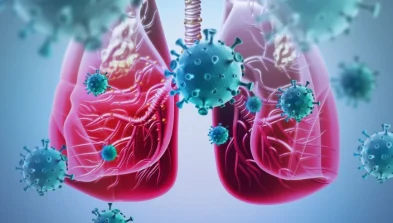What is the thyroid and what does it do?
The thyroid gland is a butterfly-shaped organ that is a part of the body’s endocrine system, the system that controls hormone production and distribution. It’s a small gland that sits in front of the neck and regulates the hormones T3 and T4, which control weight; energy levels; body temperature; and skin, hair, and nail growth, among other things. They also help regulate your heartbeat, breathing and metabolism (the speed at which you gain or lose weight).
How do thyroid disorders affect women?
Statistically, women are as much as five to eight times more likely to develop a thyroid problem compared to men. Women in particular are more sensitive to changes in the thyroid as it aids in regulating menstrual cycles. Both hypothyroidism and hyperthyroidism can cause irregular or heavier periods and make it difficult for a woman to get pregnant. Women are more prone to develop hypothyroidism.
What kinds of thyroid disorders are there?
The most common thyroid problems include hypothyroidism and hyperthyroidism.
Hyperthyroidism is caused by an overproduction of thyroid hormones T3 and T4. When these hormones are over produced, it can lead to an increase in your metabolism, which can cause accelerated weight loss and heart rate irregularities.
Hypothyroidism is due to an under production of thyroid hormones. When T3 and T4 hormones are under produced, it can lead to a decrease in your body’s metabolism, leading to weight gain and slowed heart rate. Both these conditions can lead to serious health problems if not addressed on time.
Common causes of thyroid problems include Hashimoto’s thyroiditis and Graves’ disease.
Hashimoto’s thyroiditis is an autoimmune disorder that leads to inflammation in the thyroid, causing hypothyroidism. It is often a condition that is hereditary. Typically, there is no cure, but when it leads to hypothyroidism, it can be treated with medication.
Graves’ disease is an autoimmune disease that leads to over activity in the thyroid, causing hyperthyroidism.
How are thyroid diseases diagnosed?
Thyroid hormone abnormalities are always detected with blood tests. If you take biotin supplements, you should be aware that they can interfere with thyroid labs and lead to incorrect results.
What are common symptoms for thyroid problems?
Common symptoms of thyroid problems can vary widely. People can experience weight loss or gain, fatigue, tremors, palpitations, abnormal heart rhythm (atrial fibrillation), anxiety, depression, shortness of breath, heat intolerance, muscle pain, change in mood, eye symptoms and anaemia, among other symptoms.
What can I do to keep my thyroid healthy?
As with many other diseases, a healthy diet (that includes lots of whole grains, vegetables and fruit) and regular exercise are good preventive measures.











